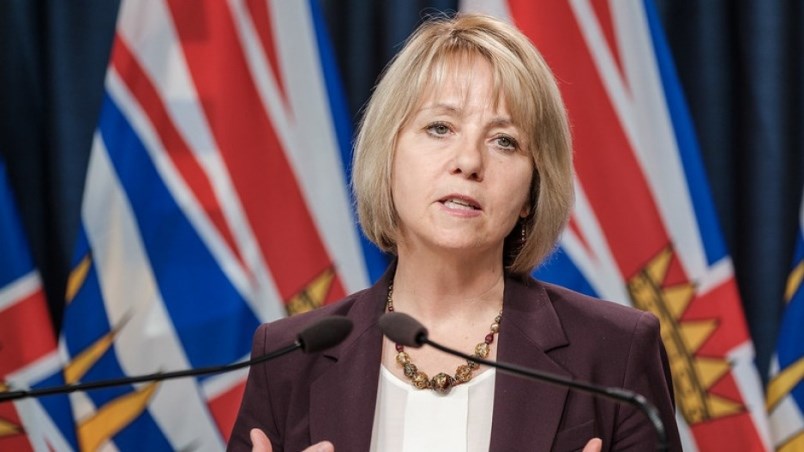Two years ago this month, a diminutive, soft-spoken doctor first began her journey as B.C.’s guiding hand in what would soon become an extraordinary pandemic.
And even though she has been the bearer of almost endless bad news, Dr. Bonnie Henry still enjoys the strong support of a solid majority of British Columbians.
A recent Leger poll of more than 1,000 people found her approval rating at 62%, a drop (seven points) from a similar poll in June but still in majority territory. Strengthening her position further was that just 20% expressed non-confidence in her.
Judging from attacks on social media - a toxic medium that does not mirror public opinion on pretty well any issue - her opponents seem mostly limited to anti-vaxxers and those who advocate for a “COVID-zero” approach with widespread restrictions and lockdowns.
British Columbia has long been known for its polarized populace, so with that in mind it is somewhat extraordinary that a leader of any sorts would enjoy such a level of support for almost two years.
Henry reported B.C.’s first case of COVID-19 on Jan. 29, 2020. The worldwide pandemic was declared six weeks later.
Her calm, unhurried style of communicating is familiar to pretty well all British Columbians by now. Her briefings and updates continue to captivate a large portion of the public, who still hang on daily case counts, hospitalizations, vaccine progress and on again/off again public health restrictions.
There have been controversies associated with a wide array of issues, such as the wearing of masks, testing strategies for the virus, booster dose intervals and various kinds of restrictions.
Public health officials in other provinces have also faced criticism in recent weeks.
However, given that we are all in uncharted territory and have been for what seems an eternity, controversies and even occasional missteps are to be expected.
In any event, controversies or not, the fact remains that B.C. continues to be in a better situation when it comes to various COVID-19 indicators (cases, hospitalizations, ICUs and deaths) than comparable jurisdictions such as Ontario, Quebec, Alberta and various U.S. states.
There seems little question that frustration and fatigue have set in with many people, which no doubt helps explain the slight drop in Henry’s approval rating. Yet whatever the frustration levels may be, they have not translated to any serious pushback to her strategies.
Indeed, when you consider that almost 4.2 million British Columbians have received two doses of vaccine and that about 50,000 people a day are receiving their booster doses, that suggests serious buy-in by the vast majority.
The path ahead remains unclear. Daily cases are declining in B.C., but hospitalizations are expected to increase in number for the next week or so.
After that, who knows?
As we head towards spring and warmer weather, my gut feeling is we will be in a better place than we find ourselves in right now.
And, unless unforeseen disaster strikes, I suspect a majority of British Columbians will continue to back Henry’s approach to things until we are finally out of this.
Keith Baldrey is chief political reporter for Global BC.



